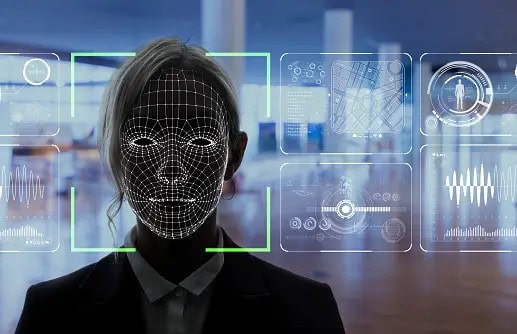Today, facial recognition technology has evolved into a serious tool that is changing the way we interact with devices and online platforms in all 360 degrees. While this technology used to be a science fiction phenomenon, it is now so integrated into various applications that we don’t go a day without it, thereby providing convenience and functionality. Face recognition SDK apps are at the forefront of innovation, from transforming selfies with artificial intelligence to being used in security applications. In this article, we will look at the latest advancements in facial recognition apps, explore what impact they are having on our digital identity and the implications for privacy and security.

Exploring the latest facial recognition applications:
In the ever-expanding landscape of facial recognition apps, the flagship is still FaceApp. Utilizing advanced artificial intelligence (AI) algorithms, FaceApp allows users to transform their selfies with a variety of filters and effects. The app’s intuitive interface and impressive results – from aging simulation to gender reassignment – have gained widespread popularity. Recently, however, concerns about privacy and data security have surfaced, which has drawn scrutiny from users and regulators alike.
Clearview AI: Controversy Surrounding Facial Recognition
Clearview AI is another notable player in the realm of facial recognition apps, but its emergence has been met with controversy. Marketed as a tool for law enforcement agencies, Clearview AI scrapes billions of images from social media platforms and other online sources to build a massive facial recognition database. While proponents argue its potential to assist in solving crimes, critics raise significant concerns regarding privacy infringement and the lack of consent from individuals whose images are collected.
- Clearview AI has stirred controversy due to its approach to building a facial recognition database.
- The app scrapes billions of images from social media platforms and other online sources without consent.
- Marketed primarily to law enforcement agencies, Clearview AI raises significant privacy concerns among users and regulators.
- Critics question the ethical implications of mass data collection and the potential for misuse or abuse of facial recognition technology.
TikTok, the wildly popular social media platform, has also integrated facial recognition technology into its user experience. Through features like filters and augmented reality effects, TikTok utilizes facial recognition to enhance user engagement and creativity. From animated stickers to interactive effects, users can personalize their content with ease. However, questions arise regarding data privacy and security, as TikTok collects vast amounts of user data, including facial biometrics, raising concerns about potential misuse or exploitation.
Navigating the Ethical Terrain: Balancing Innovation with Responsibility
In the field of face recognition technologies, ethical issues are always very much on the agenda, forcing us to seek a delicate balance between innovation and responsibility. As these applications continue to evolve and permeate various aspects of our lives, there is a need to address the ethical dilemmas they present. Ethical issues are complex and multifaceted, ranging from consent and data privacy concerns to the potential for discrimination and surveillance. It is critical for developers, policymakers, and users to engage in thoughtful dialog and take precautions to mitigate potential harms. By ensuring transparency, accountability and respect for individual rights, we can harness the transformative power of facial recognition technology while respecting fundamental ethical principles.This is important to ensure that facial recognition technology plays to our strengths and benefits us, rather than causing unnecessary problems for humanity. Together, let us navigate this confusing landscape and build a future in which innovation thrives in harmony with ethical principles.
Impact of Facial Recognition Apps on Digital Identity
Facial recognition apps have redefined how we perceive and manage our digital identities. On the one hand, they offer unprecedented convenience and personalization, allowing us to interact with technology in more intuitive and personalized ways. From unlocking smartphones to filtering photos on social media, facial recognition is seamlessly integrated into our daily lives.Our digital security has reached a new level of convenience and usability. However, there is a price to pay for this convenience. As our faces become digital commodities, stored in databases and analyzed for various purposes, questions arise about the integrity and security of our personal information. In addition, the potential for misuse of facial recognition technology raises deep concerns about the violation of individual privacy and autonomy. As we navigate this digital landscape, it is critical to advocate for robust privacy protections and ethical principles to safeguard our digital identities and preserve our basic rights.
Facial recognition applications are a double-edged sword in the digital age, bringing both hope and danger. While they enhance convenience and usability, they also raise serious ethical concerns about privacy, security, and individual autonomy. As we embrace the benefits of facial recognition technology, we must remain vigilant and advocate for responsible development and use. By ensuring transparency, accountability, and respect for individual rights, we can harness the transformative power of facial recognition while protecting our digital identities. Let’s continue to navigate this challenging path with integrity and foresight so that innovation serves humanity.
 Gearfuse Technology, Science, Culture & More
Gearfuse Technology, Science, Culture & More


